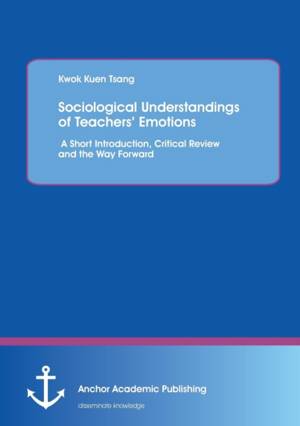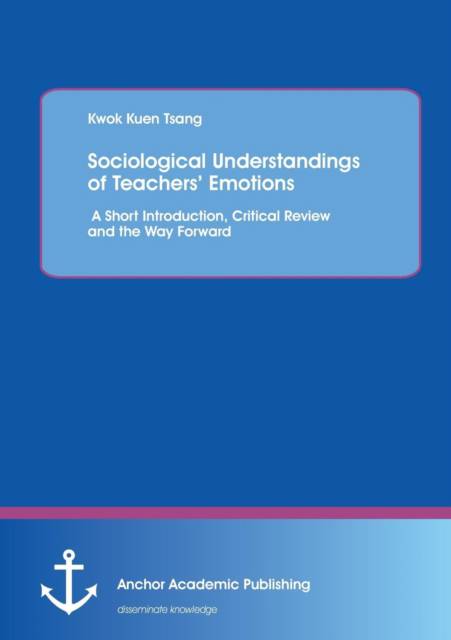
- Afhalen na 1 uur in een winkel met voorraad
- Gratis thuislevering in België vanaf € 30
- Ruim aanbod met 7 miljoen producten
- Afhalen na 1 uur in een winkel met voorraad
- Gratis thuislevering in België vanaf € 30
- Ruim aanbod met 7 miljoen producten
Zoeken
Sociological Understandings of Teachers' Emotions
A Short Introdution, Critical Review, and the Way Forward
Kwok Kuen Tsang
Paperback | Engels
€ 44,45
+ 88 punten
Omschrijving
Teachers' emotions have been issues drawing the attentions of educational scientists. Since teachers' emotions has been regarded as a psychologial phenomonon, the educational scientists explain how teachers feel and how their feelings affect educational process with psychological theories. However, more and more educational scientists note that teachers' emotions are socially constructed and the social construction of teachers' emotions is not explained by the psychological theories. As a result, they swith their theoretical perspectives from psychology to sociology. In the literature, the sociological theories they have employed include the labor process theory, theory of bureaucracy, emotional labor theory, post-structuralism, theory of emotinoal geographies, and identity theory. Nevertheless, each of the theories has some limitations. Therefore, the goals of this book is to (1) introduce and review the sociological theories which are applied to explain teachers' emotions critically and (2) propose a sociological framework and research agenda for further studies based on the critically review.
Specificaties
Betrokkenen
- Auteur(s):
- Uitgeverij:
Inhoud
- Aantal bladzijden:
- 100
- Taal:
- Engels
Eigenschappen
- Productcode (EAN):
- 9783954893225
- Verschijningsdatum:
- 16/02/2015
- Uitvoering:
- Paperback
- Formaat:
- Trade paperback (VS)
- Afmetingen:
- 148 mm x 210 mm
- Gewicht:
- 140 g

Alleen bij Standaard Boekhandel
+ 88 punten op je klantenkaart van Standaard Boekhandel
Beoordelingen
We publiceren alleen reviews die voldoen aan de voorwaarden voor reviews. Bekijk onze voorwaarden voor reviews.











